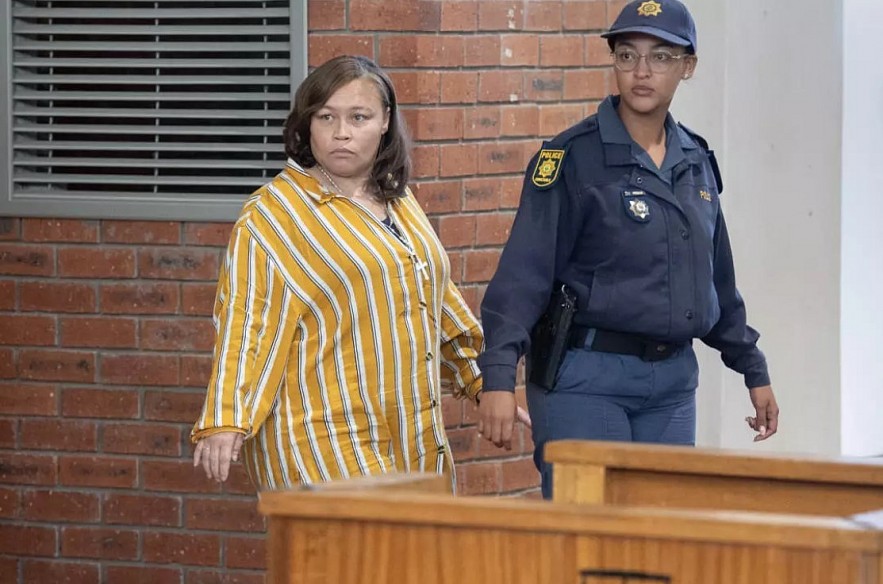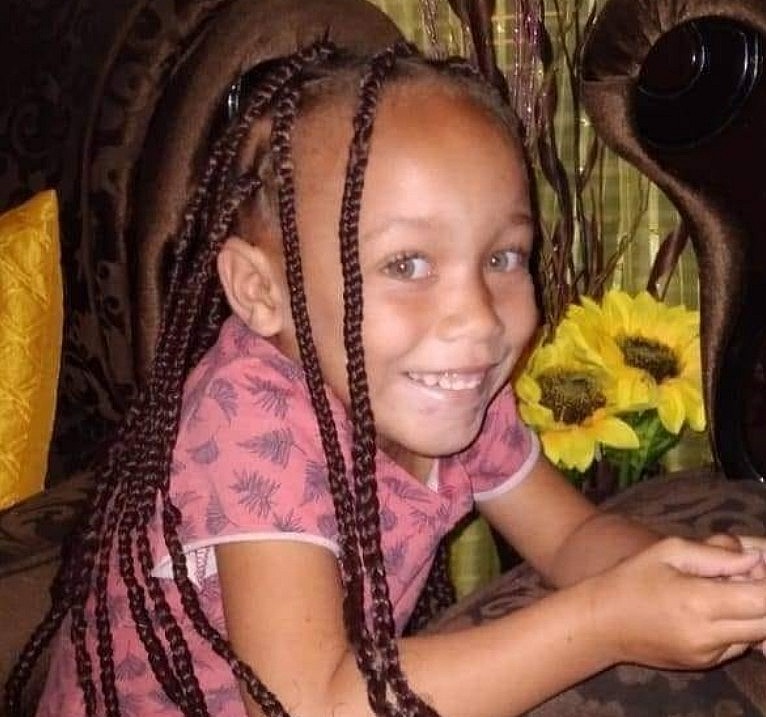Who Is Kelly Smith? The Mother Who Sold Her Six-Year-Old Daughter
In one of South Africa’s most haunting and disturbing cases in recent years, Kelly Smith — a 35-year-old mother from Saldanha Bay — has been convicted of kidnapping and trafficking her own daughter, six-year-old Joshlin Smith. The child remains missing, sparking national grief, fury, and a renewed conversation about the sinister underworld of child trafficking.
This article takes a deep, updated look at the case — from Joshlin’s disappearance to the recent court rulings — and breaks down everything you need to know about the woman at the center of it all: Kelly Smith.
 |
| Kelly Smith (L) was found guilty of trafficking her six-year-old daughter |
1. The Disappearance That Shook a Nation
On February 19, 2024, Joshlin Smith did not show up at Diazville Primary School. According to her mother, Kelly Smith, Joshlin had a fever and stayed home, left in the care of Smith’s boyfriend, Jacquen Appollis. When Kelly returned later that day, she claimed Joshlin was gone.
But soon, inconsistencies in her story raised suspicions. Authorities launched a massive manhunt. Search teams combed beaches, fields, and informal settlements. Flyers were posted nationwide. South Africans watched in horror as days turned into weeks — and Joshlin remained missing.
2. Who Is Kelly Smith?
Kelly Smith, a mother of four, lived in the Middelpos informal settlement in the Western Cape. Neighbors described her as secretive and distant. Behind closed doors, Smith was reportedly battling drug addiction and spiraling into desperation.
What came next would leave a country stunned.
Witnesses came forward alleging that Smith had sold Joshlin to a sangoma (a traditional healer) — possibly for use in ritualistic practices — in exchange for money or to pay off a drug debt. A price tag was reportedly placed on the child: R20,000 (approximately $1,100). The supposed motive? Settling a drug debt, or profiting from her daughter's unique appearance — pale skin and green eyes, which some believed made her “valuable” in sangoma circles.
3. The Arrests and Charges
Within weeks of Joshlin’s disappearance, police arrested:
-
Kelly Smith (mother)
-
Jacquen Appollis (Smith’s boyfriend)
-
Steveno van Rhyn (a family acquaintance)
-
Lucinda Appollis (Jacquen’s sister)
All were charged with kidnapping and human trafficking.
The shock deepened when investigators revealed that Smith had allegedly attempted to sell more than one of her children. A local pastor testified that she had previously asked if he knew someone willing to "buy kids."
4. Inside the Trial: Chilling Testimonies and Silence from the Accused
The trial began in March 2025 under intense public scrutiny. Held in a community hall — chosen to accommodate the high turnout — the courtroom was packed with locals, reporters, and grieving supporters of Joshlin.
The prosecution presented over 30 witnesses, including neighbors who testified that Kelly Smith had openly discussed selling Joshlin. One woman, Lourentia Lombaard, claimed Smith admitted she sold her daughter to a sangoma for body parts.
Key facts presented:
-
Smith showed no emotion during searches.
-
She refused to join volunteer search parties.
-
She changed her story multiple times.
-
She told a friend she’d “never see Joshlin again.”
What stunned the courtroom: None of the accused testified. They called no witnesses. They offered no defense. The silence spoke volumes.
 |
| Joshlin Smith's mother is accused of kidnapping her |
5. The Verdict: Guilty on All Counts
On May 2, 2025, Judge Nathan Erasmus delivered a damning verdict.
All three main defendants — Kelly Smith, Jacquen Appollis, and Steveno van Rhyn — were found guilty of kidnapping and human trafficking. In his ruling, Erasmus described Smith as “the mastermind” who manipulated others for her own gain.
Kelly Smith, once a mother of four, was now a convicted trafficker of her own child.
6. Sentencing: Life Behind Bars
On May 29, 2025, the trio was sentenced:
-
Life imprisonment for human trafficking
-
10 additional years for kidnapping
-
Permanent registration on South Africa’s Child Protection Register
The courtroom erupted in applause — not in celebration, but in emotional relief. For many, it was a small measure of justice. But the pain remains: Joshlin is still missing.
7. Where Is Joshlin Smith?
Despite months of investigations, interrogations, and nationwide searches, Joshlin Smith’s body has not been recovered. Police have not ruled out the possibility that she may still be alive, though hope is fading.
Volunteers continue to search. Posters remain on street poles. Her name is still spoken in vigils. Her empty seat at Diazville Primary is a haunting symbol of stolen innocence.
8. National Outrage and Reflection
Joshlin’s case has become a flashpoint for outrage in South Africa. Citizens are demanding:
-
Stronger child protection laws
-
More accountability for social services
-
Harsher penalties for traffickers
Activists say the case has exposed how vulnerable children in impoverished communities truly are — especially when families are trapped in cycles of addiction, unemployment, and hopelessness.
9. How the Media and Public Responded
From tabloids to prime-time broadcasts, the case drew intense media coverage. Joshlin was compared to Madeleine McCann — both girls gone without a trace, both sparking global headlines.
However, many South Africans also noted the unequal attention given to missing children. Joshlin’s case was an exception, not the rule. Hundreds of other children go missing in South Africa each year — with little to no media attention.
10. The Bigger Picture: Human Trafficking in South Africa
According to Missing Children South Africa, a child goes missing every five hours in the country. While not all are trafficked, the number tied to illegal adoptions, labor exploitation, and ritual killings is rising.
Joshlin’s case, tragic as it is, may finally be the wake-up call needed to combat this silent epidemic.
Conclusion: A Country Changed by One Little Girl
Kelly Smith’s story is not just about one mother’s betrayal. It’s a warning. A tragedy. And a call to action.
Her conviction may bring a measure of justice, but until Joshlin is found, closure remains out of reach.
Her face — wide-eyed and smiling on missing posters — has become a national symbol of lost innocence and parental failure.
As South Africa grapples with the aftermath, one message rings clear: no child should ever be sold. Not for drugs. Not for money. Not ever.























